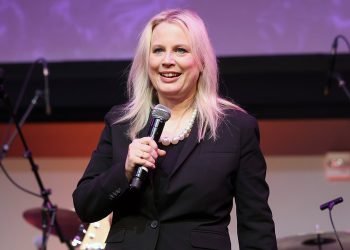Assessing No Other Land out of Berlinale, Rory O’Connor explained the “disorienting and dispiriting landscape” right into which it was premiering. Rather an exaggeration to claim the city of Berlin and its major-market event stumbled with any kind of feedback to the recurring genocide in Gaza, versus which lots of filmmakers that have actually participated in the event in years past have actually spoken up. As Rory sums up:
“The film premiered this week at the Berlinale, a festival mired in recent controversies in a country that is failing to acknowledge the limits of its own guilt. In the month leading up to the festival, several filmmakers pulled their work from the selection to protest the lack of Palestinian solidarity. Workers of the festival then released an open letter calling for the festival’s organizers to demand a ceasefire. In the weeks leading up, the city’s cultural minister, Joe Chialo, had to backtrack on a proposed ‘anti-discrimination’ clause that was set to be added to applications for artists seeking funding––which many saw as a way to silence anyone who might criticize Israel through their work. The festival then made headlines by inviting members of the far-right AFD party to the festival’s opening ceremony––a decision they reversed within days before receiving yet more criticism by the German filmmaker and jury member Cristian Petzold for not following through with it.”
No Other Land, which Rory commended as “a story about power [that] needs to be told,” took place to win Berlinale’s Docudrama Honor on Saturday. At the consequent event co-director Yuval Abraham kept in mind that he and fellow writer Basel Adra—- the previous Israeli, the last Palestinian—- experience fantastic separates:
“We are standing in front of you now. Me and Basel are the same age. I am Israeli, Basel is Palestinian, and in two days we will go back to a land where we are not equal. I am living under a civilian law and Basel is under military law. We live 30 minutes from one another, but I have voting rights; Basel does not have voting rights. I am free to move where I want in this land; Basel is, like millions of Palestinians, locked in the West Bank. This situation of apartheid between us, this inequality, it has to end.”
A reasonable and ambiguous declaration! Other than that an Israeli information network broadcast the clip and, per Abraham, regarded it anti-Semitic, a tag that’s engendered death threats in the direction of the filmmaker. This, Ben Russell putting on a standard Palestinian keffiyeh, and Eliza Hittman requiring an end to the existing battle was regarded by Berlin mayor Kai Wegner “an intolerable relativization,” acts of racial discrimination, and motivation for the event’s following rate of administration “to ensure that such incidents do not happen again.” Exactly how to apply this without taking part in straight-out censorship, to claim absolutely nothing of threats and scare tactics, is any person’s hunch.
These, a hack of the Instagram web page coming from Berlinale’s Scenic view area—- one condemning the event’s response to Gaza and requiring a ceasefire—-and docudrama court participant Abbas Fahdel’s understanding right into Berlinale’s functions (e.g. neither censoring uniformity with Palestine neither hindering No Other Land‘s win) baldly display a festival in crisis. The situation, I’ m sorry to claim, is not likely to settle itself prior to the following noteworthy movie events—- the Academy Honors on March 10 and Cannes Movie Event, running in between Might 14 and Might 25—-and one shudders to assume what a convergence of declarations and counterpoints could stimulate; it’s just in our power as an electrical outlet to share assistance with these artists and hate the thuggish methods of those that would certainly suppress them.






















![It was all going well until… | Squid Game 2 | Netflix [ENG SUB] It was all going well until… | Squid Game 2 | Netflix [ENG SUB]](https://thehollywoodpremiere.com/wp-content/uploads/2025/01/It-was-all-going-well-until-Squid-Game-2-120x86.jpg)







